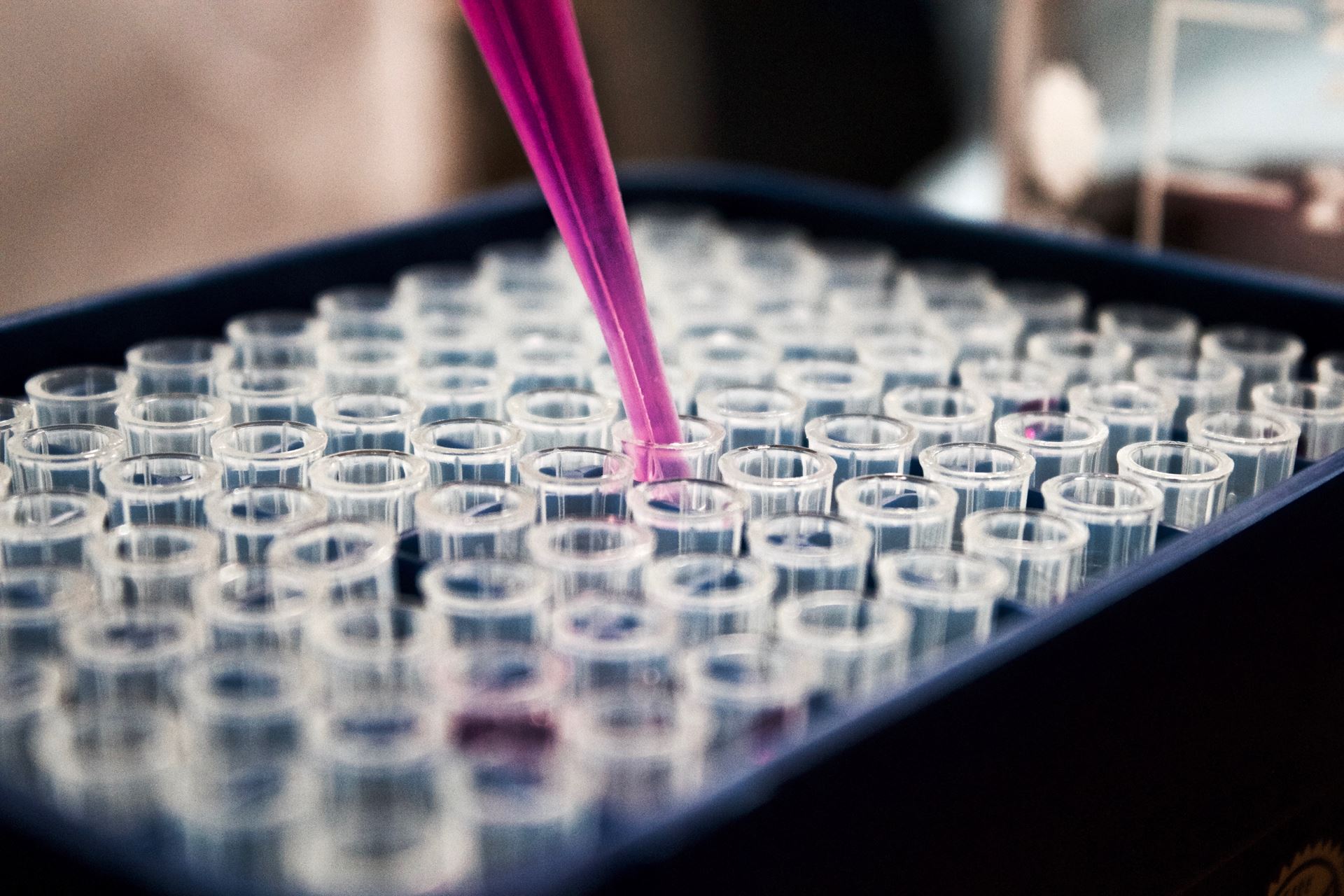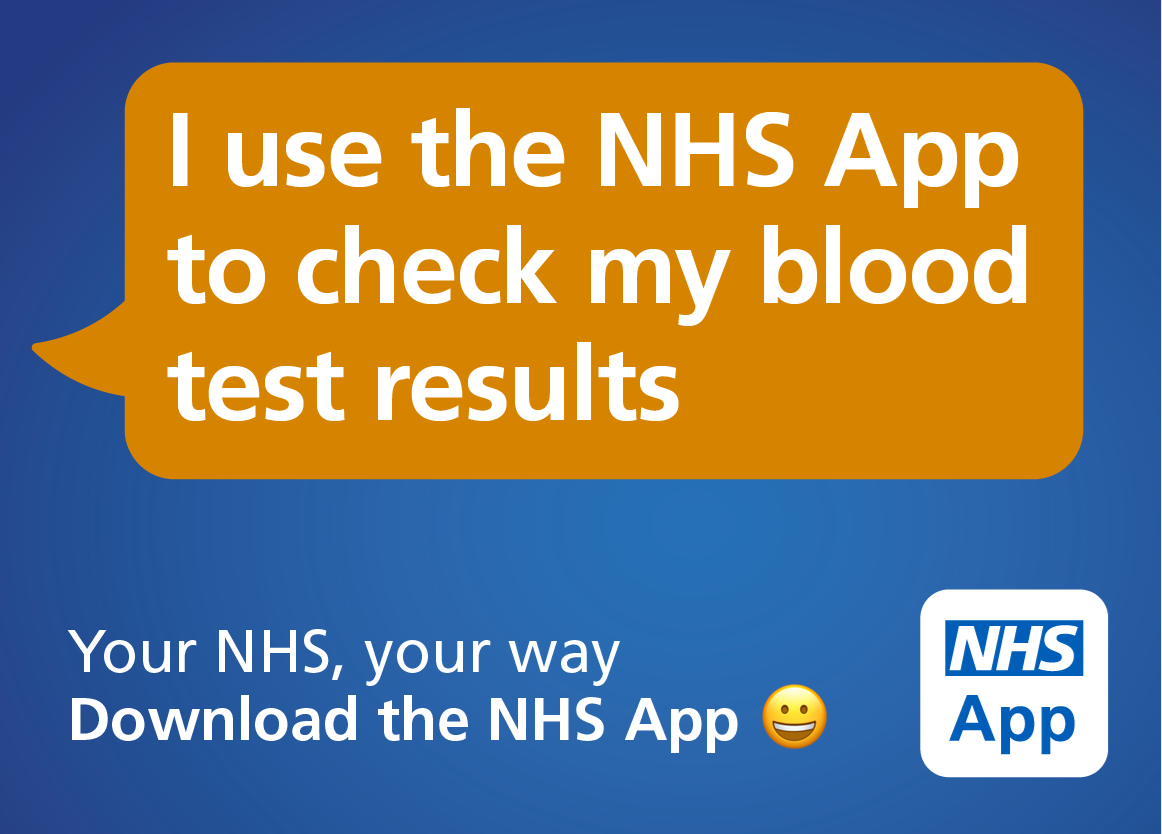Test Results
Results of Tests and Investigations
When your GP arranges for you to submit a blood test/ urine sample/ stool sample the result will usually come back about a week later
The quickest and easiest way to view your results is online via The NHS app or your chosen patient access provider.
When contacting the surgery for test results, please wait at least:
- 7 days for your blood test results
- 10 days for X-ray and ultrasound results
- 21 days for DEXA scan results
Reception can inform you of tests results over the phone, but only after 11am due to phone pressures earlier in the morning.
We will not routinely contact you about normal results.
For abnormal results, we will either:
- Contact you by phone, letter or text to arrange a repeat test. This is because a result can be slightly high or low and a repeat test can tell us whether there is a problem that needs further investigation.
- Contact you by phone, letter or text to arrange a routine telephone appointment to discuss the result with a doctor. This is usually when there is no significant or immediate concern.
- Contact you by phone or text to arrange an urgent telephone or face-to-face appointment to discuss the result with a doctor. This is usually when there is an urgent medical concern.
Tests which are arranged by hospital consultants (CT scan and MRI’s) do not come automatically back to your GP until after you have seen the hospital doctor and been given the result personally.
Please note that we do have a strict policy regarding confidentiality and data protection. In this respect we will only give out results to the person they relate to unless that person has given prior permission for their release or if they are not capable of understanding them.
If you want to discuss any result in more detail, or discuss the next steps in your treatment plan, please book a routine appointment with the doctor.

Blood Tests
A blood test is when a sample of blood is taken for testing in a laboratory. Blood tests have a wide range of uses and are one of the most common types of medical test. For example, a blood test can be used to:
- assess your general state of health
- confirm the presence of a bacterial or viral infection
- see how well certain organs, such as the liver and kidneys, are functioning
A blood test usually involves the phlebotomist taking a blood sample from a blood vessel in your arm and the usual place for a sample is the inside of the elbow or wrist, where the veins are relatively close to the surface. Blood samples from children are most commonly taken from the back of the hand. The childs hand will be anaesthetised (numbed) with a special cream before the sample is taken.
You can find out more about blood tests, their purpose and the way they are performed on the NHS Choices website.
X-Rays
An X-ray is a widely used diagnostic test to examine the inside of the body. X-rays are a very effective way of detecting problems with bones, such as fractures. They can also often identify problems with soft tissue, such as pneumonia or breast cancer.
If you have an X-ray, you will be asked to lie on a table or stand against a surface so that the part of your body being X-rayed is between the X-ray tube and the photographic plate.
An X-ray is usually carried out by a radiographer, a healthcare professional who specialises in using imaging technology, such as X-rays and ultrasound scanners.
You can find out more about x-ray tests, how they are performed, their function and the risks by visiting the NHS Choices website.
Page created: 20 December 2023

